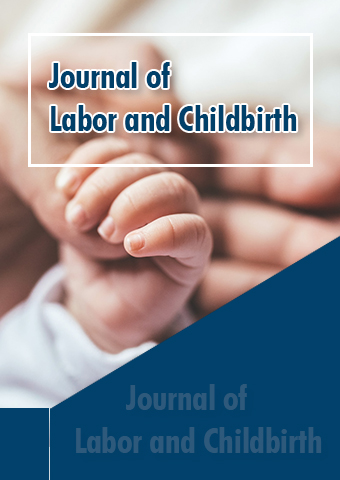Perspective - Journal of Labor and Childbirth (2024) Volume 7, Issue 4
The Devastating Impact of Poverty on Children
- Corresponding Author:
- Ahram Han
Department of Child Welfare,
Vamez University,
Selfoss,
Iceland
E-mail: ahan@snu.ac.kr
Received: 02-Jul-2024, Manuscript No. jlcb-24-140558; Editor assigned: 05-Jul-2024, PreQC No. jlcb-24-140558 (PQ); Reviewed: 19-Jul-2024, QC No. jlcb-24-140558; Revised: 26-Jul-2024, Manuscript No. jlcb-24-140558 (R); Published: 23-Aug-2024, DOI: 10.37532/ jlcb.2024.7(4).252-253
Introduction
In today’s world, where wealth and prosperity coexist with deprivation and need, perhaps nowhere is the divide more starkly evident than in the lives of children growing up in poverty. Poverty, a multifaceted and pervasive issue, affects children in myriad ways, shaping their physical, emotional and cognitive development from the earliest stages of life. This article delves into the profound effects of poverty on children, exploring its implications across various dimensions and highlighting the urgent need for comprehensive solutions.
Description
Understanding poverty: A multidimensional challenge
Poverty is not merely the lack of financial resources; it encompasses a complex web of disadvantages that permeate every aspect of a child’s life. According to the world bank, poverty is often defined as living on less than $1.90 a day, but its impacts extend far beyond income levels alone. For children, poverty manifests as inadequate access to essential services such as healthcare, education, nutrition and safe living conditions. These deprivations significantly hinder their ability to thrive and reach their full potential.
Health and well-being: The toll of economic deprivation
One of the most immediate and dire consequences of poverty is its impact on children’s health. Lack of access to nutritious food, clean water and proper sanitation increases the risk of malnutrition, infectious diseases and stunted growth. In impoverished communities, children are more likely to suffer from chronic conditions such as respiratory infections, diarrheal diseases and parasitic infections, which can have longterm implications for their physical development and overall well-being.
Moreover, poverty often limits access to timely medical care and preventive services, exacerbating health disparities and increasing the likelihood of preventable illnesses. Children growing up in poverty are also more susceptible to mental health issues, including anxiety, depression and behavioral problems, stemming from the stress and instability that characterize their daily lives.
Education: Breaking the cycle of disadvantage
Education is widely recognized as a pathway out of poverty, yet for many children living in impoverished conditions, access to quality education remains elusive. Financial constraints force families to prioritize immediate needs over long-term investments in their children’s schooling. As a result, children from low-income households are more likely to attend underfunded schools with inadequate resources, overcrowded classrooms and limited educational opportunities.
The lack of educational support at home, coupled with societal barriers and low expectations, further impedes their academic progress and perpetuates cycles of poverty across generations. Studies consistently show that children from disadvantaged backgrounds face higher dropout rates, lower academic achievement and diminished prospects for future employment, perpetuating a cycle of intergenerational poverty that is difficult to break.
Social and emotional development: Navigating adversity
Beyond the tangible hardships, poverty profoundly affects children’s social and emotional development. Growing up in environments characterized by economic insecurity, social isolation and community violence can undermine their sense of safety and belonging. The stress of poverty can strain family relationships, leading to higher rates of parental conflict, domestic instability and inadequate parental supervision.
Moreover, children exposed to chronic adversity are more likely to exhibit behavioral challenges, including aggression, impulsivity and difficulties in regulating emotions. These behavioral issues not only impact their academic performance but also strain their relationships with peers and authority figures, further isolating them from supportive social networks that are crucial for healthy development.
Policy implications and pathways to change
Addressing the complex interplay of factors that perpetuate childhood poverty requires a multifaceted approach that encompasses social, economic and political dimensions. Policymakers play a crucial role in implementing evidence-based interventions aimed at alleviating poverty and its adverse effects on children. This includes expanding access to affordable healthcare, nutritious food and quality education, as well as promoting economic opportunities for vulnerable families through targeted support programs and employment initiatives.
Investments in early childhood development are particularly critical, as the foundational years of life lay the groundwork for future success.
By prioritizing early interventions such as early childhood education, parental support programs and access to comprehensive healthcare services, policymakers can mitigate the long-term consequences of poverty and equip children with the tools they need to thrive.
Furthermore, fostering collaboration between government agencies, nonprofit organizations and community stakeholders is essential for creating sustainable solutions that address the root causes of poverty and promote social equity. Advocacy efforts aimed at raising awareness about the impact of poverty on children can also mobilize public support for policy reforms and initiatives that prioritize the well-being of vulnerable populations.
Conclusion
In conclusion, the effects of poverty on children are profound and far-reaching, influencing every aspect of their lives from birth into adulthood. From compromised health and limited educational opportunities to social exclusion and emotional distress, poverty perpetuates a cycle of disadvantage that threatens the future prospects of millions of children worldwide. Addressing the root causes of poverty and investing in comprehensive solutions are imperative not only for the well-being of children today but also for the future prosperity of societies as a whole. By prioritizing equitable access to essential resources and opportunities, we can create a more just and inclusive world where every child has the chance to thrive, regardless of their socioeconomic background.

